 Your new post is loading...
 Your new post is loading...
LG Electronics appears to have decided to pull out of its money-losing smartphone business and entered into a transition process to relocate its mobile communications employees to other business units.
After suffering operating losses since 2015, LG attempted recently to sell its mobile communications unit, which oversees the smartphone business. The company has reportedly been in negotiations with various interested buyers, including Vietnam's Vingroup, but failed to reach an agreement with any of them.
LG Electronics has considered selling parts of its operations or pulling out of the smartphone business altogether. But it decided recently to pull out of the smartphone business altogether.
"LG has considered various options such as a sale, split sales or pulling out of the smartphone business, but decided recently to pull out of the business," according to industry sources, Thursday, adding that the company will make an official announcement at its board meeting on April 5.
When asked to address such prospects, an LG Electronics official said, "There's nothing to comment on."
"All we can say is that every possibility is open. Although we cannot confirm that right now, we will announce the specific direction of our mobile communications business," the official said.
The possibility of LG pulling out of the smartphone business surfaced in January when LG Electronics CEO Kwon Bong-seok acknowledged that the company was reviewing the direction of its mobile communications business with all possibilities open.
Industry watchers expected an official comment from the company at its shareholders' meeting on March 24, but its Chief Financial Officer Bae Doo-yong only reiterated the company's aforementioned position that "all possibilities remain open."
While the company has struggled with the smartphone business, LG's stock value has been reevaluated with soaring demand for its cutting-edge home appliances and TVs, as consumers have spent an increasing amount of time at home due to the COVID-19 pandemic.
Furthermore, LG has been expanding its presence gradually in emerging sectors such as electric vehicles (EVs) and vehicle components. Last December, the company announced the establishment of a joint venture with automotive parts maker Magna International to manufacture electric motors, inverters and onboard chargers used in EVs.
Magna had been involved in Apple's EV-manufacturing business under Project Titan. The announcement drove LG Electronics shares to their 30 percent daily limit on the day the news broke as investors hoped the joint venture could potentially join Apple's EV business. The iPhone maker announced recently that it plans to roll out its first EVs in 2024 or later.
Although LG has not made any comments regarding the joint venture's participation in the manufacture of Apple's EVs, Magna International CEO Swamy Kotagiri said at a recent automotive association event that the company is ready to produce vehicles for Apple or any other carmaker. The CEO added that Magna is willing to expand its manufacturing plant if necessary to manufacture Apple-designed cars.
There are about 5.3bn people on earth aged over 15. Of these, around 5bn have a mobile phone and 4bn a smartphone. The platform wars ended a long time ago, and Apple and Google both won (outside China, at least). So it is time to stop making charts.
Here are some takeaways by ReCode: - 2017 was the first year in which smartphone unit shipments didn’t grow at all. As more of the world become smartphone owners, growth has been harder and harder to come by. The same goes for internet user growth, which rose 7 percent in 2017, down from 12 percent the year before. With more than half the world online, there are fewer people left to connect.
- People, however, are still increasing the amount of time they spend online. U.S. adults spent 5.9 hours per day on digital media in 2017, up from 5.6 hours the year before. Some 3.3 of those hours were spent on mobile, which is responsible for overall growth in digital media consumption.
- Despite the high-profile releases of $1,000 iPhones and Samsung Galaxy Notes, the global average selling price of smartphones is continuing to decline. Lower costs help drive smartphone adoption in less-developed markets.
- Mobile payments are becoming easier to complete. China continues to lead the rest of the world in mobile payment adoption, with over 500 million active mobile payment users in 2017.
- Voice-controlled products like Amazon Echo are taking off. The Echo’s installed base in the U.S. grew from 20 million in the third quarter of 2017 to more than 30 million in the fourth quarter.
- Tech companies are facing a “privacy paradox.” They’re caught between using data to provide better consumer experiences and violating consumer privacy.
- Tech companies are becoming a larger part of U.S. business. In April, they accounted for 25 percent of U.S. market capitalization. They are also responsible for a growing share of corporate R&D and capital spending.
- E-commerce sales growth is continuing to accelerate. It grew 16 percent in the U.S. in 2017, up from 14 percent in 2016. Amazon is taking a bigger share of those sales at 28 percent last year. Conversely, physical retail sales are continuing to decline.
- Big tech is competing on more fronts. Google is expanding from an ads platform to a commerce platform via Google Home Ordering. Meanwhile, e-commerce giant Amazon is moving into advertising.
- People are spending more on health care, meaning they might have to be more focused on value. Meeker asks: “Will market forces finally come to health care and drive prices lower for consumers?” Expect health care companies to offer more modern retail experiences, with convenient offices, digitized transactions and on-demand pharmacy services.
- The speed of technological disruption is accelerating. It took about 80 years for Americans to adopt the dishwasher. The consumer internet became commonplace in less than a decade.
- Expect technology to also disrupt the way we work. Just as Americans moved from agriculture to services in the 1900s, employment types will again be in flux. This time, expect more on-demand and internet-related jobs to predominate.
- Internet leaders like Google and Amazon will offer more artificial intelligence service platforms as AI becomes a bigger part of enterprise spending.
- China is catching up as a hub to the world’s biggest internet companies. Currently, China is home to nine of the world’s 20 biggest internet companies by market cap while the U.S. has 11. Five years ago, China had two and the U.S. had nine.
- Immigration remains important for U.S. tech companies. More than half of the most highly valued tech companies in the U.S. are founded by first- or second-generation immigrants. Uber, Tesla, WeWork and Wish all have first-generation founders.
Google has announced it’s acquiring a $1.1bn chunk of HTC’s smartphone business, and with it providing the once leading Taiwanese phone brand a much needed lifeline. But what does Google want with part of a smartphone business?Google isn’t buying the whole of HTC, just a relatively large part of the Taipei-based company’s smartphone business and not its Vive virtual reality headset business. Google gains half of HTC’s research and development team – about 2,000 people – and a non-exclusive license for HTC’s intellectual property, allowing it to take advantage of some of HTC’s advances in smartphone technology.HTC gets a cash injection, which will help it survive in some very competitive markets, and Google gets to continue its “big bet on hardware” according to Rick Osterloh, the company’s senior vice president for hardware.It’s “a business decision to have access to one of the best R&D teams”, said Neil Shah, research director at Counterpoint Technology Market Research. But it’s also “a sort of emotional decision to save its close partners”.Little history of hardwareWhile Google is the creator of the Android operating system, which is now used on more than 2bn devices a month, or 89% of mobile devices according to IDC, it has only dabbled with making its own smartphones and tablets. It routinely partnered with firms such as HTC, LG and Huawei to make the Nexus series of a devices, which sold in low volumes and acted as showcases for each new version of Android.Google bought Motorola in 2011 for $12.5bn (£9.24bn), and while it ran it as a separate company selling smartphones aimed at the low end, the acquisition was really about a large stock of important patents.“Its main reasoning was to acquire Moto’s patent portfolio so as to protect against Apple (and Microsoft) while also providing stiffer competition to Samsung (although Google would never admit this),” said David McQueen, research director at ABI Research.Google sold Motorola to China’s Lenovo in 2014 for $2.9bn without the collection of patents.
It's easy to see that the Android ecosystem currently has a rather lax policy toward security, but a recent study from the University of Cambridge put some hard numbers to Android's security failings. The conclusion finds that "on average 87.7% of Android devices are exposed to at least one of 11 known critical vulnerabilities." Data for the study was collected through the group's "Device Analyzer" app, which has been available for free on the Play Store since May 2011. After the participants opted into the survey, the University says it collected daily Android version and build number information from over 20,400 devices. The study then compared this version information against 13 critical vulnerabilities (including the Stagefright vulnerabilities) dating back to 2010. Each individual device was then labeled "secure" or "insecure" based on whether or not its OS version was patched against these vulnerabilities or placed in a special "maybe secure" category if it could have gotten a specialized, backported fix.
For the first time, Americans spent more time on average looking at their mobile devices than at a television screen. Based on Flurry data charted for us by BI Intelligence, Americans spent an average of 2 hours and 57 minutes a day on a mobile device, compared to 2 hours and 48 minutes in front of a TV set.
Paris- and New York-based Dashlane has raised $22 Million from Bessemer Venture Partners as well as existing investors for their password protection solution, the company announced this week. Born in 2010 as a project by co-founder Bernard Liautaud as Paris engineering school Ecole Centrale de Paris, Dashlane has grown to a service with more than 2 million users, “[enabling] over $1 billion in e-commerce transactions,” as the company points out in their statement about the fundraising.
In 2009, Farhan Thawar joined mobile development firm Xtreme Labs as VP of Engineering. At the time, it handled accounts for some of the biggest brands in the world — a roster including the largest social networks and popular sports organizations. And they all had one thing in common: They all sensed the urgency to break into mobile in a big way.
This trend has borne itself out. Facebook reported last year that 78% of its daily users in the U.S. access the site from their phones. For Twitter, the figure is 75%, with mobile representing 65% of its ad revenues.
Unfortunately, there are so many misconceptions around mobile development that many newer startups end up squandering time and money they simply can’t afford, says Thawar. Today he helms engineering for Pivotal Labs Canada following Xtreme’s acquisition, and after years observing what works and what doesn’t, he’s honed in on the top five myths that startups must bust to do mobile right.
If there's one negative thing you've heard about the iPhone in past few years, it's that it's getting walloped in market share battle with Android. Around the world, that's certainly true, but in the U.S., the iPhone is doing pretty well. As you can see in this chart from Statista based on data from comScore, Android is actually falling while the iPhone continues to take share.
Reading is inherently time consuming because your eyes have to move from word to word and line to line. Traditional reading also consumes huge amounts of physical space on a page or screen, which limits reading effectiveness on small displays. Scrolling, pinching, and resizing a reading area doesn’t fix the problem and only frustrates people. Now, with compact text streaming from Spritz, content can be streamed one word at a time, without forcing your eyes to spend time moving around the page. Spritz makes streaming your content easy and more comfortable, especially on small displays. Our “Redicle” technology enhances readability even more by using horizontal lines and hash marks to direct your eyes to the red letter in each word, so you can focus on the content that interests you. Best of all, Spritz’s patent-pending technology can integrate into photos, maps, videos, and websites to promote more effective communication.
Google has signed an agreement to sell Motorola to Lenovo for $2.91 billion, the company announced after markets closed on Wednesday. Google will keep the "vast majority" of around 10,000 patents it acquired when it bought Motorola in 2012 for $12.5 billion.
Google has just forged a partnership with German automaker Audi to bring an Android-powered entertainment and information system to Audi vehicle dashboards in the near future. It's a clear shot against Apple, which announced an 'iOS in the Car' program last year, with the collaboration of Mercedes, BMW and Honda — as well as GM in the United States. Here's the Wall Street Journal's take on the deal, which was their scoop: "With 80 million new cars and light trucks sold each year, automobiles represent a significant new opportunity for Internet-based software and services. 'The car is becoming the ultimate mobile device,' said Thilo Koslowski, an analyst at the research firm Gartner. 'Apple and Google see that and are trying to line up allies to bring their technology into the vehicle.'"
It’s hard to get people to concentrate long on anything on their phones and tablets, yet YouTube seems to be the exception. The video service is quickly going mobile, with small screens making up 40% of its traffic now compared to 25% last year, Google said on itsearnings call today. In 2011, just 6% of YouTube traffic came from mobile. Google’s not the only one rapidly shifting a 1 billion+ user base to mobile. To put its transition in perspective, Facebook said it had 819 million monthly mobile users (73%) out of its total 1.15 billion users in Q2 2013, up from 543 million (56%) of 955 million in Q2 2012, 325 million (43%) of 739 million in Q2 2011, and 155 million (32%) of 482 million in Q2 2010. Note these people used Facebook mobile at least once, but may also have used desktop. Facebook doesn’t share what total percentage of usage comes from mobile, but 41% of its ad revenue comes from phones and tablets, up from 30% in Q1 2013, 23% in Q4 2012, and 14% in Q3 2012.
|
Huawei Technologies will begin selling smartphones capable of running its self-designed operating system next year, as it seeks to keep its consumer business going without Google Android and other U.S. suppliers.
"Last year we developed CT-Scan, a service that helped us understand the performance implications of code changes and decrease the number of software regressions. When a commit lands in a repository, CT-Scan performs a build and runs performance tests, such as cold and warm start, feed scroll performance, and battery consumption. The results are plotted and engineers can learn whether they're causing an issue with a new build. Initially, engineers tested code by running CT-Scan on a single device that they had at their desks. This didn't scale — we needed to be able to run tests on more than 2,000 mobile devices to account for all the combinations of device hardware, operating systems, and network connections that people use to connect on Facebook. Today, in our Prineville data center, we have a mobile device lab — outfitted with a custom-built rack — that allows us to run tests on thousands of phones. The process of building a lab in our data center wasn't a direct path, and we learned a lot along the way as we worked to scale out the promise of CT-Scan."
We all know life hasn’t been the same since Apple launched the iPhone nearly ten years ago. That little screen is always nearby—in our pocket or backpack, on the nightstand or under the pillow—beckoning us. Each of us feels the pull, and it’s hard to dimensionalize. How much are we really attached to our phones physically, cognitively… emotionally? As people nerds, the dscout research team exists to understand that pull. When we first dug in, what we discovered was a dearth of good data. Pundits have long tossed about statistics for how often we use our phones, but pretty much everyone references the same 2013 Kleiner Perkins report citing 150 mobile sessions a day—and often that number, now three years old, is taken out of context. We decided to dig for some data of our own. dscout’s web-based research platform pairs with a smartphone app to capture in-the-moment behaviors. For this study, we recruited a demographically diverse sample of 94 Android users from our pool of more than 100,000 participants. Then we built a supplementary smartphone tool to track every user’s interaction across 5 days, 24 hours a day. And by every interaction, we mean every tap, type, swipe and click. We’re calling them touches. Like a Greek tragedy, what we learned was simultaneously expected and astonishing—and a little bit sad. What follows are insights to help you better understand the intensity of the mobile life your users live, so your brand, products and strategies can become part of it.
Low Power Wide Area (LPWA) network specialist Actility raised $75 million in new capital, as it looks to enhance its portfolio of industrial IoT solutions across different verticals, accelerate in the US and boost its position in China. The company, which is a co-founder of the LoRA alliance and developed its global IoT solutions on the LoRaWAN standard, raised the capital as part of its Series D funding round, which attracted a group of new investors; Creadev, Bosch and Inmarsat. Actility said a second closing later this month would see additional strategic investors join the company “in support of this over-subscribed capital raise”. It already counts major players as backers including KPN, Orange Digital Ventures, Swisscom and Foxconn, after raising $25 million in its Series C funding round, completed in 2015. Actility bases its offering around its ThingPark platform, which it said is powering “most national and large scale LPWA rollouts worldwide”. The company revealed the platform had also grown more industrial, to not only support the LoRaWAN standard, but also other standardised LPWA technologies including LTE-M and NB-IoT.
Apple's iOS 9 is expected to cause a boom in the use of IPv6, which could speed up service provider networks but create a lot of work for mobile developers. The new Apple mobile OS, coming out on Wednesday, will treat the new Internet Protocol as an equal to IPv4 instead of favoring the older system. That will cause iOS devices to use IPv6 much more, as long as apps, websites and carrier networks support it, according Facebook engineer Paul Saab. He led a panel discussion on IPv6 at Facebook's @Scale conference on Monday. Even when all the pieces are in place for IPv6, iOS 8 only makes an IPv6 connection about half the time or less because of the way it treats the new protocol. With iOS 9, and IPv6 connection will happen 99 percent of the time, Saab predicts. IPv4 is running out of unused Internet addresses, while IPv6 is expected to have more than enough for all uses long into the future. Adoption has been slow since its completion in 1998 but is starting to accelerate. The release of iOS 9 may give a big boost to that trend. "Immediately, starting on the 16th, I'm expecting to see a lot more v6 traffic show up," said Samir Vaidya, director of device technology at Verizon Wireless. About 50 percent of Verizon Wireless traffic uses IPv6, and Vaidya thinks it may be 70 percent by this time next year as subscribers flock to the iPhone 6s.
If it wasn’t clear that media usage is shifting from desktop to mobile, here’s a nifty chart provided for us by Statista, using data from the latest comScore report released Thursday. According to comScore, this is the first time mobile apps have accounted for more than 50% of all digital media consumption. As far as content goes, mobile users tend to use radio and photo applications the most, followed by mapping and instant messaging applications, and of course, games.
Last year, it took a shot at creating its own pseudo mobile operating system with Facebook Home, an Android app that replaced your home screen with a pretty stream of photos and updates from your Facebook feed. It was a dud. Then there were the series of separate mobile apps like Poke, Camera, and Paper that have largely failed to resonate with people. Most seem to be happy with the regular Facebook app, Instagram, and Facebook Messenger. But at today's F8 developers conference, Facebook unveiled some new tools that will give Facebook a deeper level of control over your phone, no matter what kind of device you use. The most important one is called App Link, a tool that developers can use to help their apps and websites talk to each other. To use Facebook's example, imagine looking up a movie review on your phone on the mobile Rotten Tomatoes site. Well, what happens if you want to use the Fandango app to buy tickets to that movie? As things stand now, you'd have to close out your browser, launch the Fandango app, and then search for the movie again. With App Link, the Rotten Tomatoes developers would be able to provide you with a link that lets you jump right into the movie's ticket page in the Fandango app. In theory, it's seamless. That process is also called deep linking, and it's been a messy problem for app developers until now. Apple, Google, and Microsoft don't make it very easy for developers to use deep linking on their respective mobile operating systems. App Link is open for any developer to use, so over the next few months you can expect to see more and more of your apps start playing nicely with each other.
Google Play worldwide downloads now exceed iOS App Store downloads by around 45%, driven by growth in emerging markets. Russia and Brazil have been on the rise for some time now, but Mexico and Turkey also had a strong influence on Google Play downloads in Q1 2014.The iOS App Store remains comfortably ahead in worldwide revenue, generating about 85% more revenue than Google Play. This gap narrowed over the last quarter though, as Google Play revenue increased markedly in the United States and United Kingdom.China was the key market for iOS App Store growth, showing exceptional gains in both downloads and revenue. iOS App Store revenue in China grew around 70% quarter-over-quarter.Games remained the key category driving growth in both app stores. However, there was also growth in categories outside of Games. Tools saw gains in Google Play revenue, dominated by anti-virus and security apps. On iOS, Finance grew in revenue during tax season in the United States.Messaging apps remained a huge growth area, contributing to the gains for the Communication category on Google Play and Social Networking on iOS.
If you were ever wondering why Google has aggressively pursued Android, this chart is the answer. Mobile gadgets like smartphones and tablets have drastically increased the time we spend online according to a new report by comScore. The more time we're online, the better it is for Google.
Of Microsoft’s many challenges in mobile, none loom larger than the app deficit: it only takes a popular new title like Flappy Bird to highlight what the company is missing out on. Windows 8 apps are also few and far between, and Microsoft is stuck in a position where it’s struggling to generate developer interest in its latest style of apps across phones and tablets. Some argue Microsoft should dump Windows Phone and create its own "forked" version of Android — not unlike what Amazon has done with its Kindle Fire tablets — while others claim that’s an unreasonably difficult task. With a new, mobile- and cloud-focused CEO in place, Nokia's decision to build an Android phone, and rumors of Android apps coming to Windows, could we finally see Microsoft experimenting with Google’s forbidden fruit? Sources familiar with Microsoft’s plans tell The Verge that the company is seriously considering allowing Android apps to run on both Windows and Windows Phone. While planning is ongoing and it's still early, we’re told that some inside Microsoft favor the idea of simply enabling Android apps inside its Windows and Windows Phone Stores, while others believe it could lead to the death of the Windows platform altogether. The mixed (and strong) feelings internally highlight that Microsoft will need to be careful with any radical move.
ULTRAMOBILE YEAR AHEAD: Gartner has updated its annual device forecasts for PCs, tablets, and mobile phones for the new year. On the whole, the research outfit thinks sales of all of these devices combined will grow by just over 7% in 2014, which would be a re-acceleration in growth compared to the 4% growth achieved between 2012 and 2013. Mobile phones, both feature phones and smartphones, will dominate in terms of sales volume, with expected annual sales of almost 1.9 billion. But it will be the "ultramobiles" category, in which Gartner includes tablets, hybrids, and flip-form devices, that will set the pace for growth, with increased sales of nearly 54% during the year. We feel this is a function of growing demand for "phablets," or devices that carry a screen size somewhere between the standard 5-inch smartphone and the 8-inch tablet. Phablet shipments have already skyrocketed in key markets for mobile growth like China and India. PC sales, meanwhile, will continue to be hampered by the mobile movement. Gartner thinks PC sales will decline 7% in 2014. ONE BILLION ANDROID DEVICES! If 2013 was the watershed year for Android in terms of market share, then 2014 will be the year Android solidifies its stronghold on the global mobile market. Gartner estimates Android will sell 1.1 billion devices for the year. They also confirm that Android blows past Apple in terms of installed base, with 1.9 billion active Android devices already in use. With slowing growth in mobile uptake in developed markets, expect Android to make massive waves with new, lower-income users in emerging mobile markets, where most new customers are priced out of the premium device market dominated by Apple. (Gartner)
|




 Your new post is loading...
Your new post is loading...


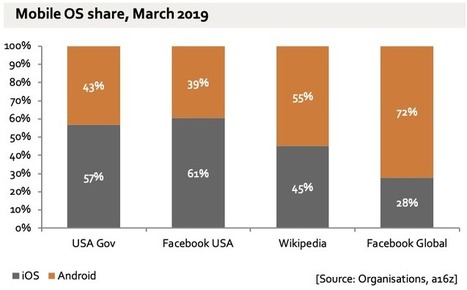
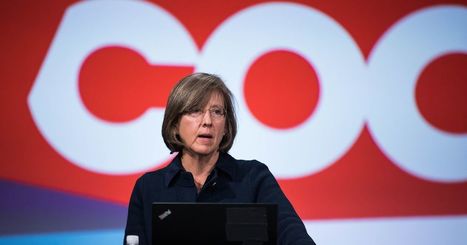
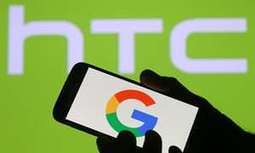
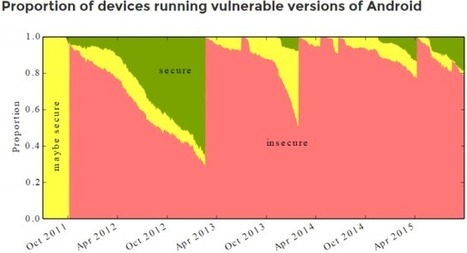


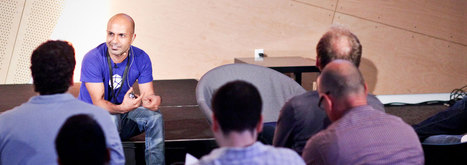
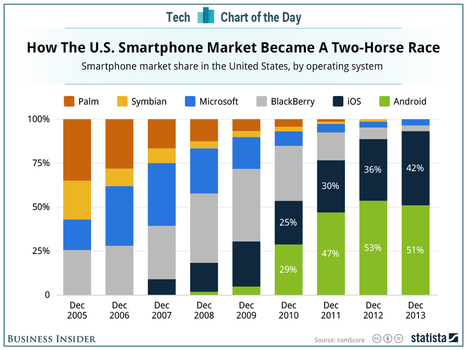


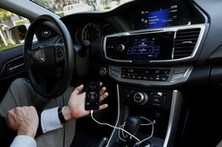


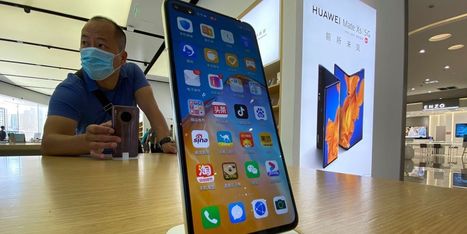

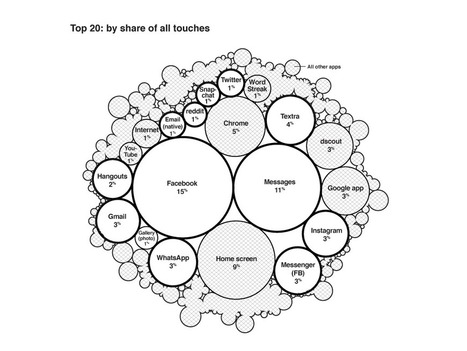

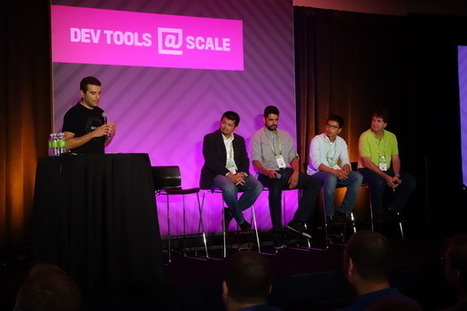

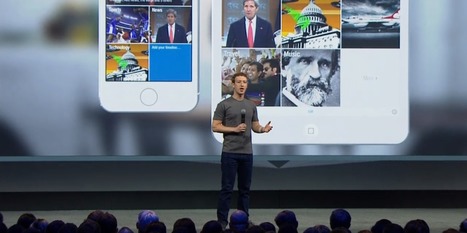
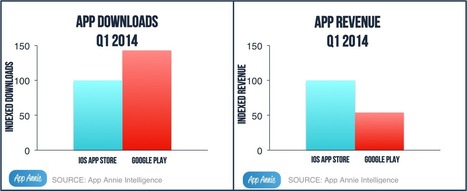

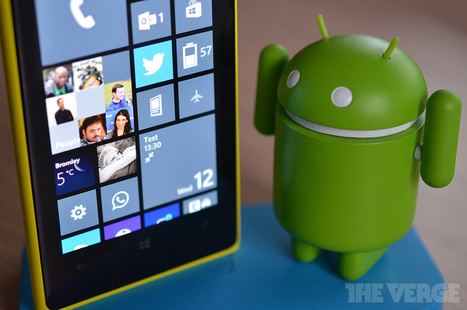
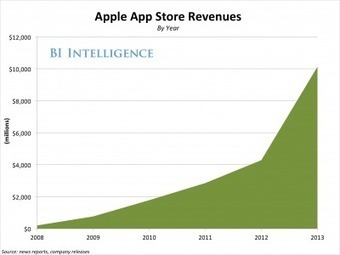
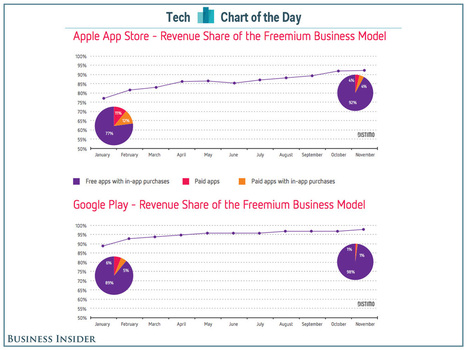





Life is (no longer) Good ...